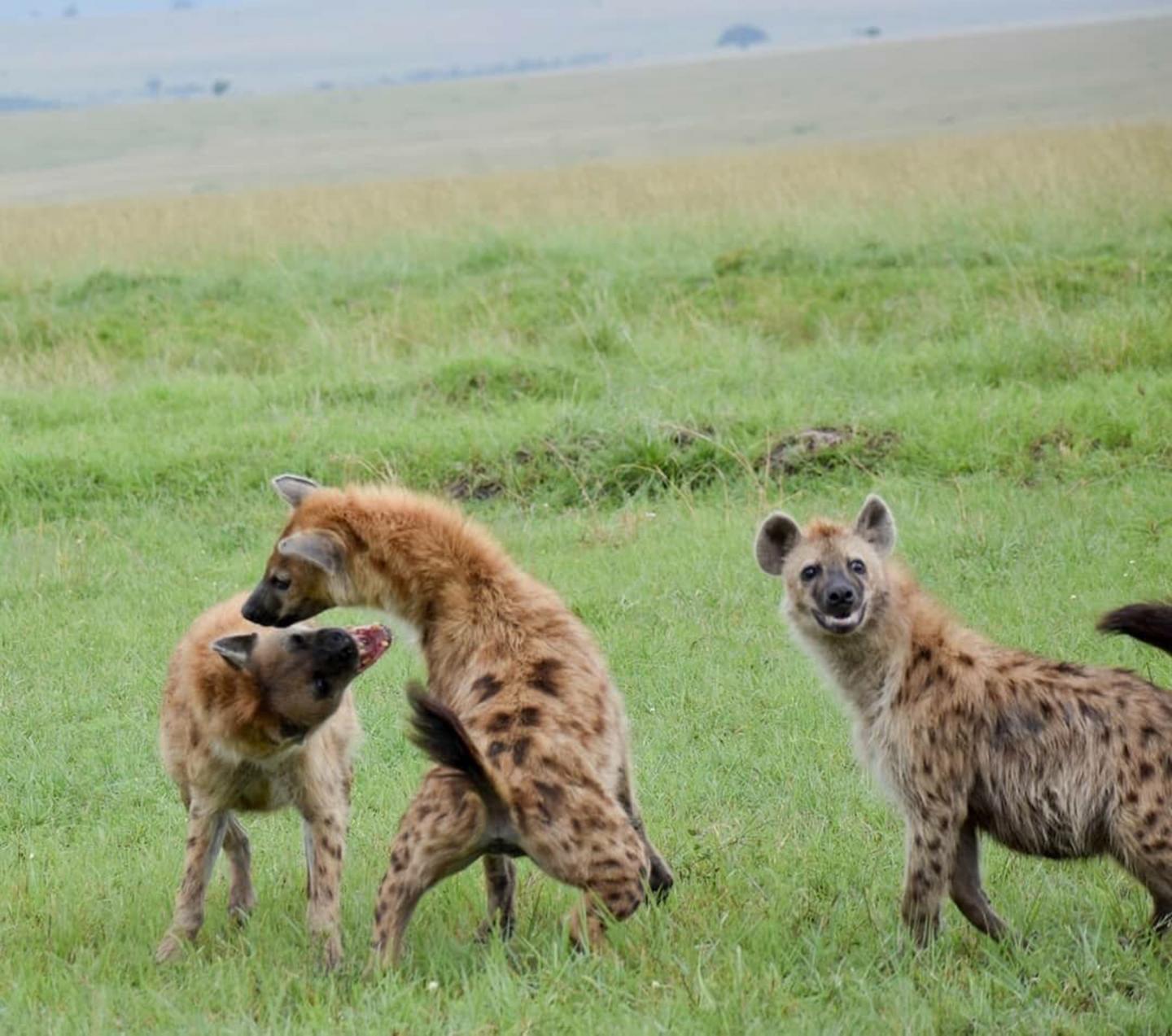
Credit: Courtesy of MSU
EAST LANSING, Mich. – When it comes to advancing social status, it’s not what you know, it’s who you know – for humans and spotted hyenas alike.
In a new study published in the current issue of Proceedings of the National Academy of Sciences, Michigan State University scientists show that hyenas that form strong coalitions can gain social status, which can have lasting benefits over many generations.
“The high-ranked animals clearly benefit from this system,” said Eli Strauss, MSU integrative biologist and the study’s lead author. “But low-ranked animals have a strong incentive to challenge the established pecking order and attempt to improve their position in society. This work represents a first step in reconciling the advantages of high status with the appearance of ‘arbitrary’ conventions that structure inequality in animal and human societies.”
Moving up the proverbial ladder can result in substantive differences in health, survival and reproductive success. So, with some animals, social rank is determined by individual fighting ability or physical attributes. Typically, low-ranked individuals are unable to defeat their larger or stronger, higher-ranked contemporaries. However, in other species, such as spotted hyenas, social rank is determined through a convention known as “maternal rank inheritance.”
This structure can be compared to royal families. The queen sits at the top, and her offspring are the heirs to the throne. This explains what’s been observed in hyena clans since Kay Holekamp, MSU University Distinguished Professor of integrative biology and co-author, started her study in Kenya’s Masai Mara National Reserve 27 years – and five generations of spotted hyenas – ago.
Spotted hyenas live in large, mixed-sex groups, or clans. They have highly stable hierarchies, in which being a “queen” reaps many benefits. Sometimes, however, the crown is challenged, and “lesser” hyenas move up the ladder.
“We often see small individuals dominate larger individuals, and even severely wounded individuals can dominate their healthy group-mates,” Strauss said. “Given that rank has a large effect on the fitness of these animals, what maintains the stability of a system where rank is determined in such an arbitrary manner?”
The answer, the study revealed, is strong alliances. First off, rank changes are rare among spotted hyenas.
When they do happen, though, upward changes are marked by the females armed with a strong coalition. Researchers measured rank reversals in the context of coalitionary aggression – where two or more individuals team up together in an aggression against another.
Females that form coalitions with other females harboring strong social bonds have the strongest chance of overthrowing their superiors. The results also suggest that as individual hyenas engage in more coalitions together, they become more willing to challenge dominant individuals as well as their underlings, for that matter.
“Eli developed a new method for studying dynamic changes in social rank over time and determined that coalitions of social allies can not only maintain stable rank relationships over many years by attacking lower-ranked individuals,” Holekamp said, “but also can sometimes help one another improve their status by defeating higher-ranked opponents, and thus also increase their fitness.”
Going to war, of course, is not without consequence. Subordinates risk injury or possibly death, which obviously can be detrimental to their lives, let alone their place in the social strata.
Future research will attempt to rate cost factors of these revolutionary interactions. In the meantime, this paper solves a long-standing mystery, said Holekamp, one of the world’s leading behavioral ecologists.
“This resolves a perplexing issue regarding why low-ranking animals in hierarchical societies structured by seemingly arbitrary conventions, such as royalty, don’t simply usurp power from the smaller, weaker group-mates who outrank them,” she said. “Consider, for example, how easy it would be for a strong young man to overthrow Queen Elizabeth, who is now old and frail, yet maintains her high status in British society because she has loads of allies.”
That’s because it’s good to be the queen – one with strong coalition forces at her disposal.
###
This research was funded by the National Science Foundation.
(Note for media: Please include a link to the original paper in online coverage: https:/
Michigan State University has been working to advance the common good in uncommon ways for 160 years. One of the top research universities in the world, MSU focuses its vast resources on creating solutions to some of the world’s most pressing challenges, while providing life-changing opportunities to a diverse and inclusive academic community through more than 200 programs of study in 17 degree-granting colleges.
For MSU news on the Web, go to MSUToday. Follow MSU News on Twitter at twitter.com/MSUnews.
Media Contact
Layne Cameron
[email protected]
Original Source
http://go.




